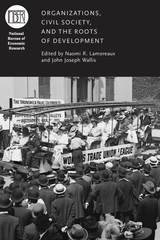
Whether we are black, gay, Republican, women, or deaf, our associations--whether voluntary or assigned--constitute crucial and inescapable elements of our identities. Both voluntary and involuntary groups have been important in American history--more important than is generally recognized. But these groups have never been adequately addressed by law, which has as its primary focus the relationship between the individual and the state. The company we keep, says the constitutional law scholar Aviam Soifer, is presumed to be each person's own business, and generally beyond notice of the law. But as America becomes a more varied country and issues arising out of multiculturalism threaten to divide us, it becomes essential, Soifer argues, to recognize rights under the First Amendment that will protect the crucial roles of groups and communities within the larger national community.
Legal doctrine and the outcomes reached in judicial proceedings will be more coherent if we acknowledge that groups qua groups have significant legal impact. The building blocks of any quest for justice must include the groups--social, political, professional, civil, interpretive, religious--from which we derive and apply ethical standards in search of a better life. The ability to step outside traditional doctrinal boxes that concentrate on relationships between individuals and government will help not only legal thinkers but every person to reason toward justice.
Using history and literature to explore the complex issues of individual and group rights, Law and the Company We Keep is the first sustained account of the presence and importance of groups in our legal culture. It confronts central questions about the multiple roles of culture and symbol in defining our groups, and through them, our lives.

The contributions to Organizations, Civil Society, and the Roots of Development seek to answer this question through an exploration of how developing nations throughout the eighteenth and nineteenth centuries, including the United States, United Kingdom, France, and Germany, made the transition to allowing their citizens the right to form organizations. The transition, contributors show, was not an easy one. Neither political changes brought about by revolution nor subsequent economic growth led directly to open access. In fact, initial patterns of change were in the opposite direction, as political coalitions restricted access to specific organizations for the purpose of maintaining political control. Ultimately, however, it became clear that these restrictions threatened the foundation of social and political order. Tracing the path of these modern civil societies, Organizations, Civil Society, and the Roots of Development is an invaluable contribution to all interested in today’s developing countries and the challenges they face in developing this organizational capacity.
READERS
Browse our collection.
PUBLISHERS
See BiblioVault's publisher services.
STUDENT SERVICES
Files for college accessibility offices.
UChicago Accessibility Resources
home | accessibility | search | about | contact us
BiblioVault ® 2001 - 2024
The University of Chicago Press









